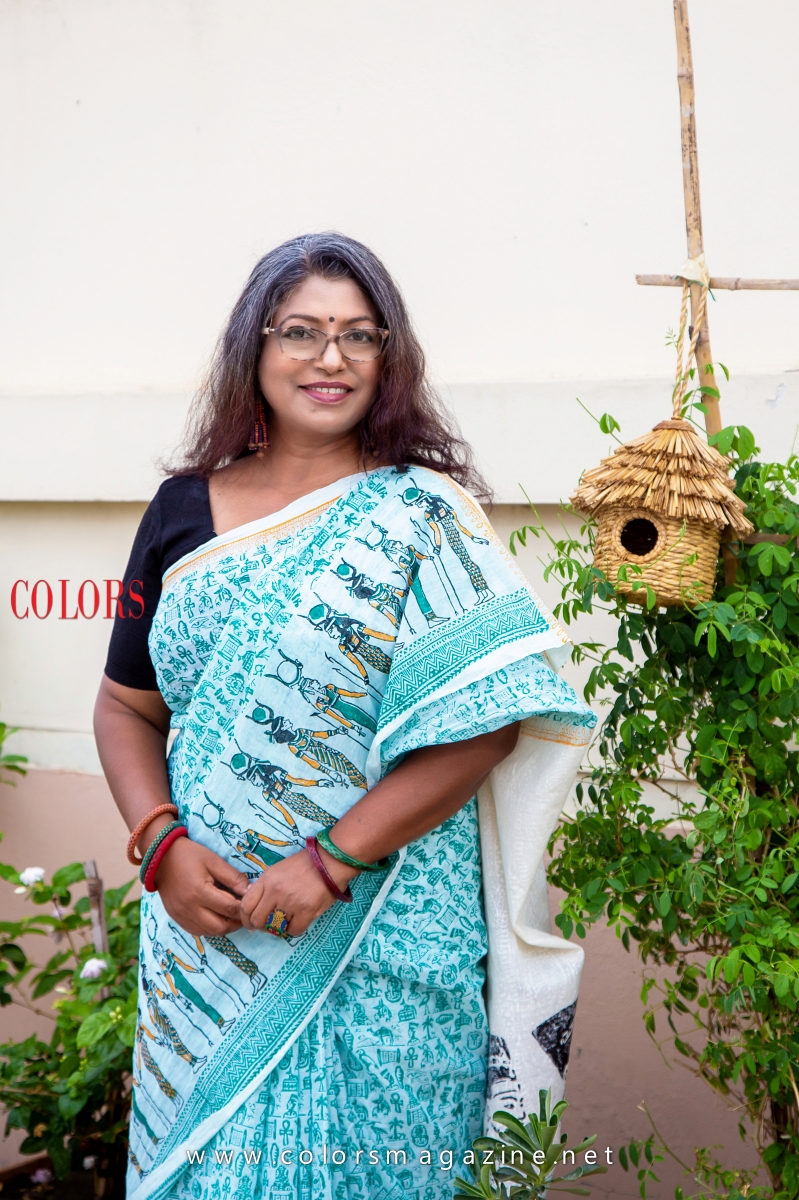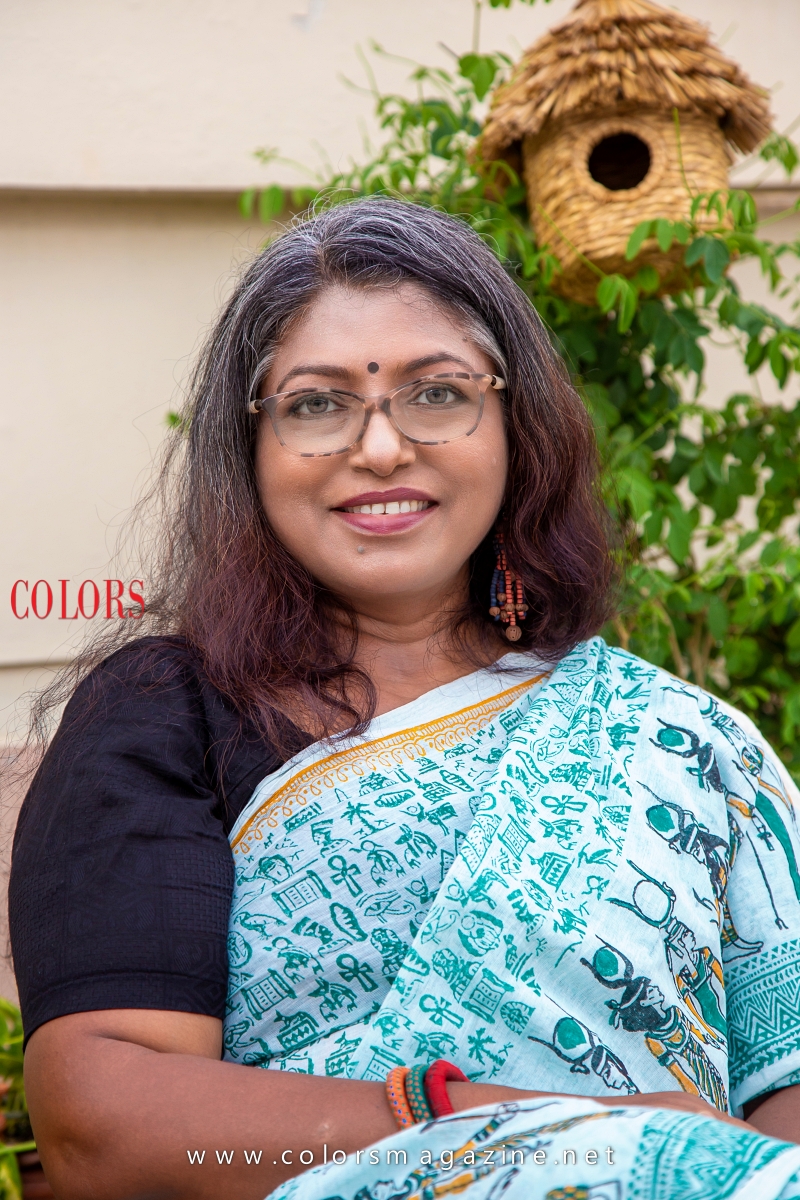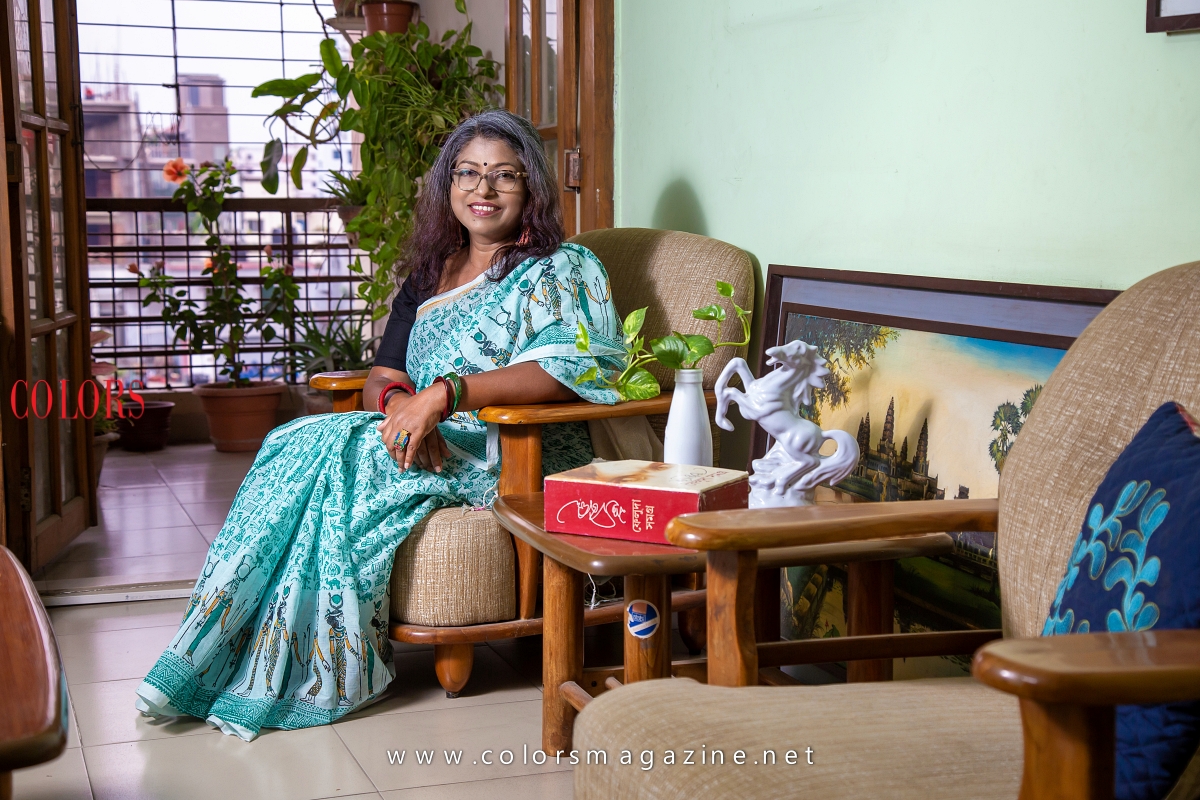Monira Rahman: A Change Maker
A life given in for the cause of social work, she never rest without finding a way for an effective solution. An Ashoka Fellow and winner of prestigious International Human Rights Award from France, the founder and CEO of Innovation for Wellbeing Foundation, Monira Rahman aims to ensuring mental health and wellbeing for all through capacity building to promote shared responsibility for mental health equity. Rehnuma Karim of Colors magazine speaks to the firebrand social worker to know about her recent program and what inspired her to take up social work as the mission of her life.

An activist at heart
My mother always said, “Raise your voice against what is wrong.” These words of advice from Monira Rahman’s mother Jobeda Khatun played a significant role as she grew up to become a defender of human rights and a voice for many disfranchised groups in Bangladesh. Her mom single-handedly raised six children after her father died during the war of Independence. The war had a deep impact on her when she not only lost her father who was unable to be treated at that time but also had to go through the sense of loss when her house was burnt by the enemy Pakistani force. Being the youngest of six siblings and going through life-shifting experiences at an early age probably shaped her to become the activist she is against oppression, discrimination, and intolerance.
Since her childhood, she was taught to serve the humanity by her mother who herself was a volunteer and a humanitarian. She was an observant child who often felt discriminated in the patriarchal society and was driven towards building a society in which all are to be treated equally. Monira was always involved in different clubs and organizations from her adolescent days and was actively involved in activism in her college and university days. While she was studying Philosophy at the University of Dhaka, she participated in the “Education for All” campaign. She was also elected Vice President of Samsunnahar Hall and devoted her time and energy to stop discriminatory rules and oppression towards female students despite being threatened and attacked. In 1991, she took part in the movement against the oppressive autocratic Ershad regime.
After her graduation, she joined Concern Worldwide and made her mark as a passionate social worker. While working at Concern Worldwide, she worked for the cause of commercial sex workers, street children and the homeless- especially mentally ill women living on the streets often arrested under the Vagrancy Act 1943. She tirelessly worked for their rights and eventually, the government reviewed both the Vagrancy Act and the juvenile justice system. In 1997, she met acid attack survivor Bina, deeply moved by her courage to brave all odds. The result has been the birth of the Acid Attack Survivors Foundation two years later in 1999.
She won several international awards and fellowships for her transformative leadership that led to a collaborative initiative to mitigate acid violence in Bangladesh. In 2006, she won the Amnesty International Human Rights Defender Award for courageous activism, and in 2009 she received the prestigious Americans for UNFPA International Award in New York City that is given to people for their exemplary contributions to women’s health especially to ensure safe motherhood, family planning, HIV prevention and the promotion of women’s rights, including prevention of gender-based violence and promotion of education for women. In 2011, she was awarded the World’s Children Prize and International Human Rights Award from France for her contributions to put an end to acid attack and petrol violence in Bangladesh. She was selected to become the Commonwealth Professional Fellow in 2012 and Ashoka Fellow in 2013.
Winning the Battle Against Acid Violence
Monira was at the forefront battling acid attack in Bangladesh through ASF and under her supervision, the acid attack that was rising 40% and peaked in 2002 to 500+ went down significantly in few years. It was not an easy task as various challenges often made the process an uphill battle.
In 1999, Acid Survivor Foundation (ASF) was established and started operating from a shared office space under CIDA’s Project support unit. She teamed up with John Morrison who shared the similar passion to stop such violence on girls and women of Bangladesh. Hence ASF was launched with some funding from UNICEF and CIDA. During those days, Dhaka Medical only had 8 beds female burn unit and every day 1 or 2 patients would die in that ward due to lack of treatment or from suicide. She also identified interconnected problem areas that must be solved to provide a comprehensive solution to acid attack. Apart from the lack of experts and treatment facilities for acid attacked victims in Bangladesh — additional struggles such as legal consequences, lack of places to stay during the treatment period and social stigma that emerged from lack of awareness on acid attack created more challenges. Prevention had to take the backseat in those days as serving patients with proper treatment was the main priority.
Although she met with various challenges in the beginning, but by 2000 things started to look hopeful as ASF started to get funding from different international and local organizations. When she took the responsibility as the Executive Director of ASF in 2002—she knew how important it is to develop a Psycho-social model that can approach the problem from all angles. Under her effective direction, ASF initiated a prevention campaign that brought Government agencies, media, survivors, and the community together to fight against acid attack. Different bodies such as “Students against Acid Attack”, Stars against acid throwing”, “Men’s march against acid attack” were formed building awareness countrywide. The government also formed acid control council and slowly the model was shaped making all groups working collectively to solve the problem. The success of the Bangladeshi model inspired 5 more countries to replicate it in their countries to fight acid violence with the help of Acid Survivor Foundation. The countries are Pakistan, India, Uganda, Nepal and Cambodia.
Her greatest strength was her approach to find a lasting solution to the acid attack in which she was able to bring the survivors to play the most important role to change society’s viewpoint. She found their story, their courage to fight back with dignity and move forward with their lives inspiring. The survivors’ motto, “I have courage, I need your cooperation” was a powerful statement that brought everyone together to win the battle against the acid attack successfully.

Addressing Mental Health Issues
When she was working with the acid attack survivors — she observed the power of a strong mindset that can conquer all odds. She saw how survivors who were suicidal, who lost meaning of life after disfigurement learning to rise up with self-respect and made something of their lives embodying the spirit of not stopping. This is how, she understood the significance of mental health, which often has been an ignored area in our society. This gave birth to her own organization – Innovation for Wellbeing Foundation (IWF) in 2013. IWF is advocacy focused NGO with a mission to promote mental health equity for sustainable development in Bangladesh.
Monira says, “Mental health and mental illness are two different things. We needed to see why and how the perpetrators of acid attack were created? What values are we instilling and what is the socialization process that contributes to such heinous crimes against human being?” According to her, if we look closer to these problems… the reason behind such acts is mostly associated with unhealthy mind. She added that, “A person who is mentally sound cannot think about harming someone else. That is when I thought if we can address areas of human mind such as empathy, resilience, care through a concerted approach and once people are aware to work on their core values, a person then can become a true representative of humanity.” This was when she seriously took a step forward to start “Innovation for Wellbeing Foundation” that emphasized on a shifting perception from disease centered approach through a collaborative solution-oriented process surrounding mental health.
According to WHO, there has been a 4-fold increase in depression, anxiety, stress during these covid times that are affecting overall mental health at global level. Along with the rest of the world, Bangladesh too has been observing a sharp increase in suicide, stress related cardio-vascular and other disease, divorce and violence — which are all products of our disinformation and our inability to take care of our mental health during these trying times. Even while she was working at Concern Worldwide, she saw how mental health problems were always ignored in our country. And to her dismay, she was appalled to see how the archaic law – “1912 Lunacy Act” was dictating the fate of people with mental health problems. The philosophy behind it was to consider people with mental illness harmful to society and should be locked up. Bangladesh did not have any National Mental health policy, nor did the country had any sound mental health service or authority. The only one that was available for the people was the Pabna Mental Hospital that practiced traditional way of treating patients. Identifying these discrepancies—Monira Rahman found herself to take similar approach as she looked at ASF’s experience to solve this overarching crisis in our health sector. When she initially started to work with the acid attack survivors, she had to face the problems regarding lack of concrete law and policies to address acid attack, ostracized survivors by the society, lack of institutionalized support and facilities to treat the victims and truly little awareness on acid attack that only contributed to worsening the situation. Mental Health crisis in Bangladesh also stands on a similar ground that needs to be addressed with a strong model of mental health and similar collaborative effort from all sectors. Already progress has been made as Monira Rahman started the dialogue bringing law commissions, the government, media, relevant agencies and individuals with mental health together since 2014. This movement therefore resulted into repealing the Lunacy act and replaced it with the Bangladesh Mental Health Act in 2018.
Referring to WHO’s model of mental health—she said, “In WHO’s pyramid model of mental health, self-care is the base. But we are not teaching our kids to face or deal with psychological issues and everyday mental health related problems. This is not a responsibility of a psychiatrist, but the responsibility lies on the teachers, the family members and the community.”
Therefore, the worldwide recognized Mental Health First Aid program was brought to Bangladesh through Innovation for Wellbeing Foundation in 2015.
Programs and Activities by IWF
Mental Health First Aid program is a literacy program that can equip a regular person with knowledge and tools to become a trainer who can be the first support point for people suffering from mental health problem.
Monira with her trained force at IWF already conducted training sessions to build mental first aiders in different organizations in Bangladesh. Embassies, NGOs, prominent corporate houses, schools, and universities are among the institutions and organizations that embraced these trainings for their staff members. During this pandemic, trainings such as these were invaluable as organizations needed to reach out to their employees and members who might be going through mental crisis such as anxiety, stress, and depression due to job loss, change of lifestyle or coping with a new way of work.
An UNDP funded innovative App “Mon Janala” was developed last year that help subscribers identify the risk factors such as stress, anxiety, poor life style, and also allow users to assess their own mental state . The App also provides video content on how to deal with different mental health related issues and how to create a mindful life. Information on available professional support in the area are also found through the App.
No one can deny that this COVID-19 is taking a toll on people not only physical—- but also psychologically, economically, and socially. Before the world was hit by this pandemic, IWF ran “Hello Happiness” program in different schools and universities, but due to COVID, the program ate limited to online webinars and services. IWF also plans to build training and consulting services for front-liners who too are suffering emotionally and physically. Therefore, along with few other organizations, IWF created a common platform to provide free consulting services during this difficult time.
IWF is in the process to develop peer support groups, which usually have bigger impact. There are few support groups created by young people during the pandemic through Facebook and some of these young people were trained as first aiders from IWF.

Envisioning the Future of Mental Health and Wellbeing
Although within these few years Monira has made tremendous progress raising awareness on the significance of mental health across different sections of population —but feels this is not enough. She wants to see government and institutions play an active role putting trained counselors in schools.
She recommends amplifying the work on mental health in Bangladesh that can bring all the interested and passionate organizations under one platform to serve communities all over Bangladesh. Along this line, IWF has already partnered with ADD International, Nasirullah Psychotherapy unit of Dhaka University and Disabled Children’s Foundation to jointly implement a four-year project focused on community-based mental health for young people funded by Comic Relief.
She also envisions government to launch a national helpline where everyone can have access to initial mental health related support when needed. Observing social stigma about the mental health professionals and inadequate knowledge base in universities in this area, she dreams of establishing an institution that will train students with experiential and effective skills on mental health. She would also love to create wellbeing centers in every districts and towns catering the needs of all and also build collaborative research and practices to promote mental health. For her “Mental health is my right. And I want to ensure that everyone can practice this right to live with a fulfilling life in this world.”




